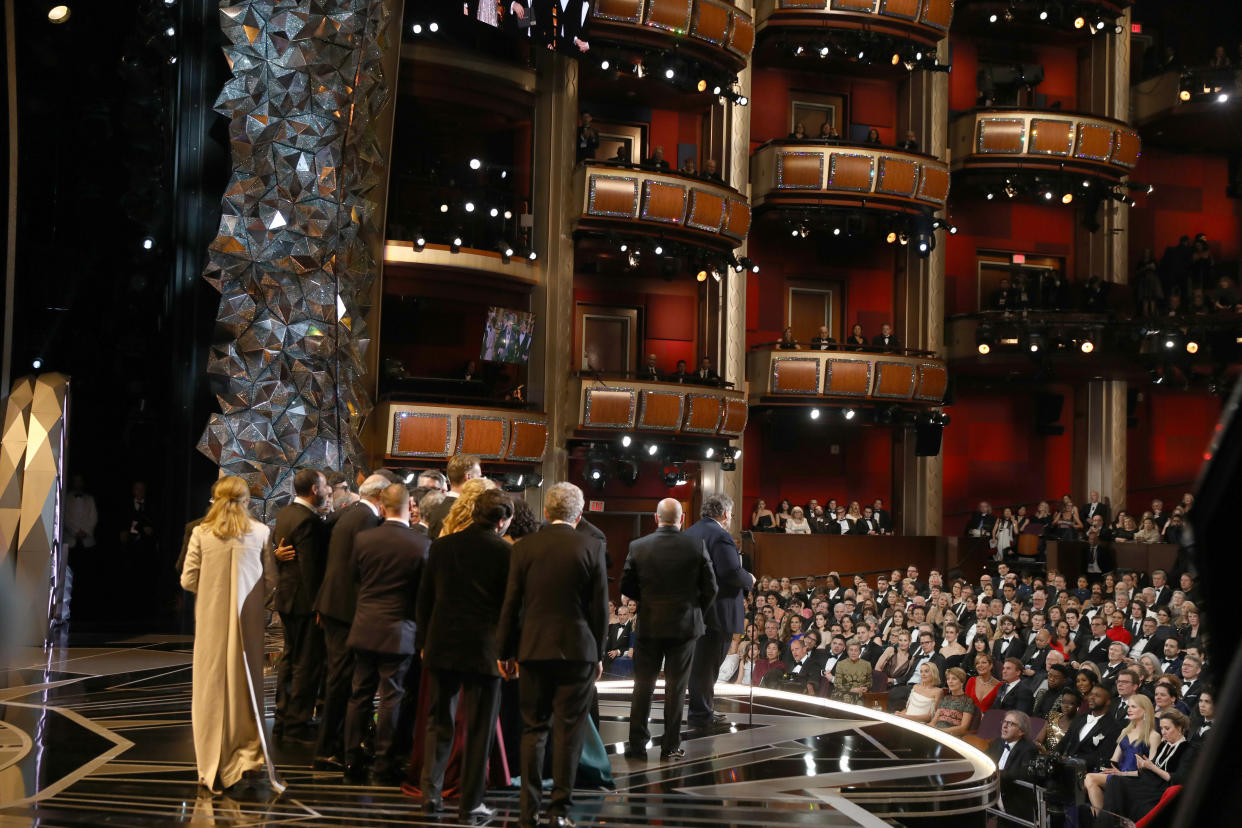Peter Bart: Should The Oscars Be A Circus Or A TV Special?

“I’ve always been a fan of the circus and the Oscars are the greatest circus.” Those were the words of the late Gil Cates, who expertly produced 14 consecutive Oscar shows. I thought of Cates the other day when the chief of ABC Entertainment commented that the chaos surrounding the upcoming Oscar show might actually be a good omen. “The Oscars are in the conversation,” said Karey Burke, adding: “The lack of clarity is compelling.”
The Oscar problems are well known – fights about host, format, etc. But those of us who’ve attended Oscar shows over the years (I’ve been to 20) wonder whether the network may be working against itself by tightening the show and imposing discipline, instead of embracing the chaos.
Related stories
'Roma's Alfonso Cuarón On Redefining Cinema In A Netflix Age & Lamenting Negative Oscar Campaigns
Oscar-Nominated Short Film 'Skin' Acquired By Fox Searchlight
Taking over the show after the bizarre Allan Carr-Snow White fiasco of the 61st awards (Rob Lowe singing a parody of “Proud Mary”), Cates captured the Oscars’ “rarified air” (his words) but still kept it close to the movies, focusing on a series of themes. The shows – international one year, focused on women the next — seemed occasionally crazed but relevant.
Cates son, Gil Cates Jr., who has re-energized the Geffen Playhouse as its executive director, recalls that the “rarified air” of the Oscar show heightened the magic of the movies. “Growing up I was lucky enough to observe the shows from the production truck, from backstage, from the back of the theater,” he said. “The shows had energy and excitement.”
To Cates, Jr, the Oscar show now needs, not a quick fix, but a five-year plan to stabilize and reinvent — to “recapture its rarified air.”
Ratings are yet another issue: The telecast hit its lowest point in 2018 with 26.5 million viewers. Mindful that younger viewers in particular were tuning away, watching clips on social media, the network has told the Academy to keep the show to three hours while embellishing its “entertainment value.” “We are not going straight to people thanking their agents,” Burke declared. “There must also be comedy.”
This year’s Oscars has a built-in advantage over its predecessor: three of the Best Picture nominees topped $200 million in box office – Black Panther, Bohemian Rhapsody and A Star Is Born. Viewers will actually identify the films under consideration and have a rooting interest.
But if the Oscar show has some good numbers going for it, it also must rely on its other asset – it’s still “a circus.” Its featured players, the stars and star filmmakers, have set aside their careers and private lives to travel the awards circuit for weeks, if not months. They are at once disconnected and in some cases disoriented. My mind flashes back to vignettes of the awards season: With Freeways to Santa Barbara choked by rain, a stranded Viggo Mortensen frantically chartering a small plane in Camarillo to take him to a festival speech; Alfonso Cuarón, looking weary and distracted, nodding off on a late-night talk show; a director, having smashed his fender rushing to the Directors Guild banquet, realizing his Uber driver has lost his way because he’s avidly pitching him a script.
By the moment of the show, the players are ready for the circus. Their time has arrived. This is not about a guild award or a globe – suddenly it’s the big time. The challenge of the Oscar show is to capture that moment and deliver it to the viewer.
Get more from Deadline.com: Follow us on Twitter, Facebook, Newsletter

